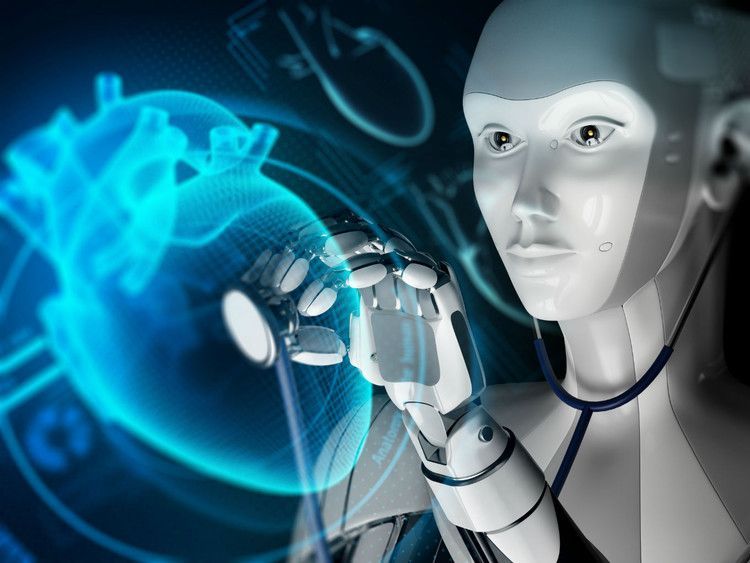The field of medicine has witnessed incredible advancements over the years, and one of the most promising areas of innovation is Artificial Intelligence (AI). With its ability to process large amounts of data and identify patterns, AI has the potential to revolutionize healthcare. In this article, we will explore the role of AI in diagnostics and treatment, discussing its benefits, challenges, and future prospects.
Diagnostics
Accurate and timely diagnosis plays a vital role in effective medical treatment. However, doctors often face challenges in making precise diagnoses due to the complexity of human biology and the sheer volume of medical knowledge. This is where AI steps in, leveraging machine learning algorithms to analyze medical data and identify patterns that may not be immediately apparent to human practitioners. AI-powered diagnostic systems can process vast amounts of patient data, including medical history, test results, and symptoms, to generate differential diagnoses and recommend further tests or treatments. This not only improves accuracy but also helps reduce human error, enabling healthcare providers to arrive at better-informed decisions. One prominent example of AI in diagnostics is IBM’s Watson for Oncology, which utilizes natural language processing and machine learning to analyze oncology data and suggest treatment options based on the specific characteristics of a patient’s case. Studies have shown that Watson for Oncology can provide treatment options that align with expert recommendations in 93% of cases, demonstrating the potential of AI to enhance cancer diagnosis and treatment.
Treatment
While AI has shown great promise in diagnostics, its impact on treatment goes beyond mere analysis. AI technologies can actively participate in the treatment process, assisting healthcare providers in devising optimized treatment plans and monitoring patient response. AI-powered treatment planning systems can consider numerous variables, such as patient demographics, medical history, genetic information, and treatment outcomes from similar cases. By incorporating this vast pool of data, AI systems can generate personalized treatment plans that account for individual patient characteristics and increase the chances of successful outcomes. Moreover, AI can continuously process real-time patient data and adjust treatment plans accordingly. This real-time monitoring helps in detecting any deviations or complications promptly, allowing for immediate interventions. With AI, doctors can have access to a powerful tool that assists in delivering personalized, adaptive treatment regimes.
Benefits and Challenges
The integration of AI into diagnostics and treatment offers numerous benefits. First and foremost, AI improves accuracy, reducing diagnostic errors and increasing the efficacy of treatment. Additionally, AI systems can process data at an incredibly fast pace, enabling healthcare providers to make faster and more informed decisions. This can significantly reduce waiting times for patients, improving overall healthcare efficiency. However, the adoption of AI in medicine also presents certain challenges. One of the main concerns is the ethical use of patient data. AI relies heavily on access to accurate and comprehensive patient information. Therefore, it is crucial to establish robust data governance frameworks to ensure patient privacy and data security. Furthermore, AI systems are not immune to biases present in the data they are trained on. If the training data is biased, it can lead to disparities in diagnoses and treatments. Efforts must be made to ensure the development of unbiased AI algorithms and the continual monitoring and evaluation of their performance.
Future Prospects
The future of AI in diagnostics and treatment looks incredibly promising. Increased accessibility to electronic health records, wearable devices, and advanced imaging technologies will provide AI systems with access to extensive patient data. This will further enhance the efficacy and accuracy of diagnoses and treatments. The collaboration between human practitioners and AI systems is also expected to expand in the coming years. AI tools can support healthcare providers by providing recommendations, serving as a second opinion, and assisting in complex decision-making processes. However, it is crucial to emphasize that AI will not replace human expertise but rather complement and enhance it. In conclusion, AI has the potential to revolutionize diagnostics and treatment in the field of medicine. From accurate diagnoses to personalized treatment plans, AI offers numerous benefits that can improve patient outcomes and enhance overall healthcare efficiency. While challenges and ethical considerations exist, the future prospects for AI in healthcare are undoubtedly bright.
